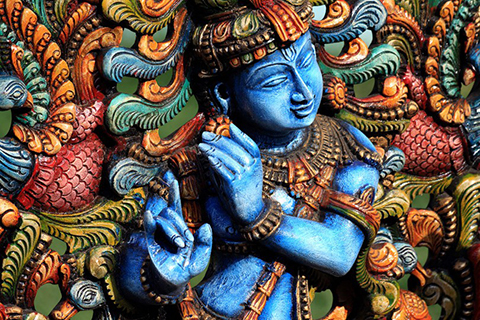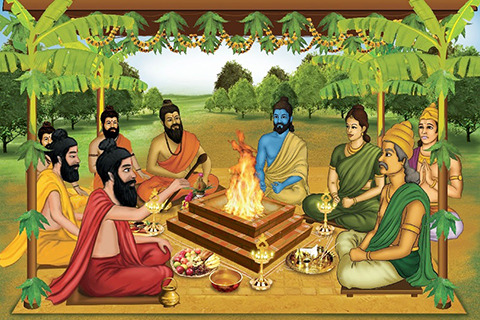- Home
- Hinduism

History of Hinduism
History of Hinduism
Hinduism's early history is the subject of much debate for a number of reasons.

Yagya, a prayer by the sacred fire
Yagya, a prayer by the sacred fire
The word "yagya" (yajna) can already be found in the early Vedic literature of the second millennium BC. In the Rigveda and Yajurveda yagya means "worshiping, devotion to something, prayer and praise, form of offering".

Definitions
Definitions
Hinduism has been called the "oldest religion" in the world, with some practitioners and scholars refer to it as Sanātana Dharma, "the eternal law" or the "eternal way" beyond human origins.

Beliefs
Beliefs
Prominent themes in Hindu beliefs include (but are not restricted to) Dharma (ethics/duties), Samsāra (the continuing cycle of birth, life, death and rebirth), Karma (action, intent and consequences), Moksha (liberation from samsara or liberation in this life), and the various Yogas (paths or practices).

Scriptures
Scriptures
The ancient scriptures of Hinduism are in Sanskrit. These texts are classified into two: Shruti and Smriti. Hindu scriptures were composed, memorized and transmitted verbally, across generations, for many centuries before they were written down.

Practices
Practices
Most Hindus observe religious rituals at home. The rituals vary greatly among regions, villages, and individuals. They are not mandatory in Hinduism. The nature and place of rituals is an individual's choice.

Person and society
Person and society
Hindu society has been categorised into four classes, called varnas. They are the Brahmins: Vedic teachers and priests; the Kshatriyas: warriors and kings; the Vaishyas: farmers and merchants; and the Shudras: servants and labourers.

 RU
RU IND
IND